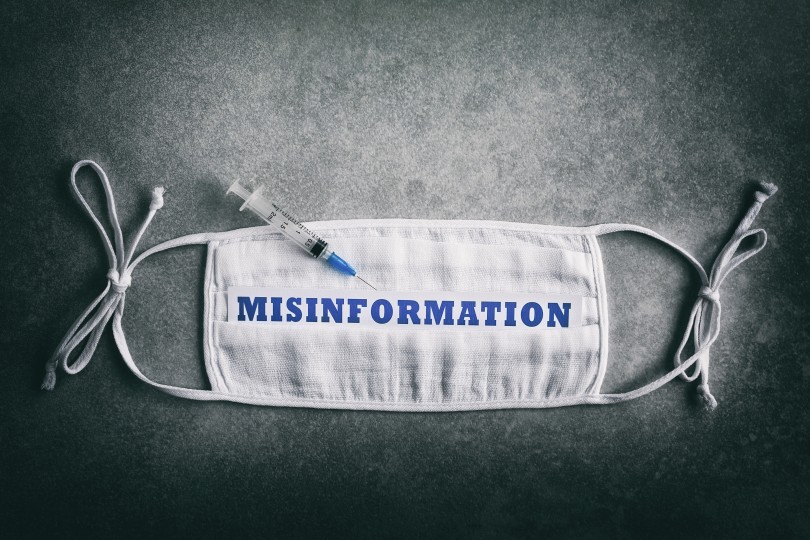Mal- mis- dis-, a neo-Marxist twist?
This is not the first time I’ve written about the importance of free speech on this blog. Since my last post on the subject, however, Western society’s commitment to the ideals that underpin free speech has waned further. We have endured not only sinister revisionist attacks on ‘problematic’ heritage statues; not only the mainstreaming of the censorious concept of ‘hate speech’ and ‘hate crimes’; but also an entire, carefully orchestrated, campaign to eradicate free speech on the internet, including the mainstreaming of some outright ludicrous euphemisms like ‘malinformation’. At least, it would be ludicrous if the stakes weren’t so very high – the wholesale collusion of government in managing the flow of public information is beyond dangerous, as evidenced both by Laura Dodsworth’s excellent book and the Twitter Files.

The diarrhea icing on this shit cake is the rise of the most revolting class of idiots in the Censorship-Industrial complex, the odious legions of ‘fact checkers’. Really, these are just self-appointed, highly-opinionated urbanites of the burgeoning Laptop Class – rebranded journalists with hutzpah – but it’s remarkable how easily everyone fell for their sham-show, and how effective they have been in fostering acceptance for the abolition of free speech online.
I find myself wondering whether the very act of advocating for free speech might soon be targeted by the censors – is it not, after all, the crime of ‘incitement to mal-, mis-, disinformation’?
I don’t agree with your cliched Voltaire quote, but I’ll defend to the death your right to use it as a section header.
It’s always good to hash over the core arguments for allowing even the most outrageous opinions to be voiced as ‘free speech’. First of all, if the goal of inhibiting free speech is to safeguard against falsehood, then censorship does an appalling job. This is because it presupposes not only that censors have pure motives, but also that they know what the truth is to begin with. As the Covid debacle showed clearly, this is not the case. In fact, it is precisely through the freest and most open exchange upon the marketplace of ideas that we begin to approach truth – an asymptote at which we never arrive.
Second, on a purely practical level, even when it’s well targeted at actual falsehood, censorship is mostly self-defeating. The ‘Streisand Effect’ takes hold, and people’s natural instincts draw them to the very pink elephant you are trying to get them to not think about.
Third, censorship is like pregnancy. You can’t really have a little bit of it. Because even when a case can be made, theoretically, for blocking speech at the extremes – for example shouting ‘fire’ in a crowded theatre – it tends to slip, over time, towards more and more authoritarian restrictions on speech. Interestingly, even this censorship straw man doesn’t hold up very well. Try actually shouting fire in a theatre and see how many people stampede. Probably none. It may be that once upon a time, with lower fire standards, such a thing might have happened. But then the solution wasn’t censorship, it was better fire-resistant building materials and sprinklers.
The case for ‘free hearing’
And yet, the recent debate has caused me to realise that none of these classic arguments against censorship is the most compelling defence of free speech. What matters more than all of the above is the effect censorship has on the audience.
To understand why, consider what effect free and open debate has on those who listen to it and participate in it. Much of what is said will be false, or only partially true. When anyone is free to claim anything, it becomes more important to use one’s own sense of discernment in analysing those claims. At its worst, of course, censorship stifles inconvenient truth. But even when it is at its best, it diminishes the audience’s capacity to exercise the mental muscles of discretion. Like people who use Google Maps to get around, the minds of the audience under (even benevolent) censorship regimes become lazy and less able to navigate their way towards the shimmering city of Veritopolis.
This is an important point to consider. Because the right to ‘free speech’ is often defended as an individual right. Yet the right to ‘free hearing’ is a social right. It is the right we all enjoy to be tricked and fooled, the right to believe something stupid, to learn from that experience and to become more discerning. Especially for the malleable minds of young people, this is a right that must be exercised widely; all the way ‘from the river to the sea’.


